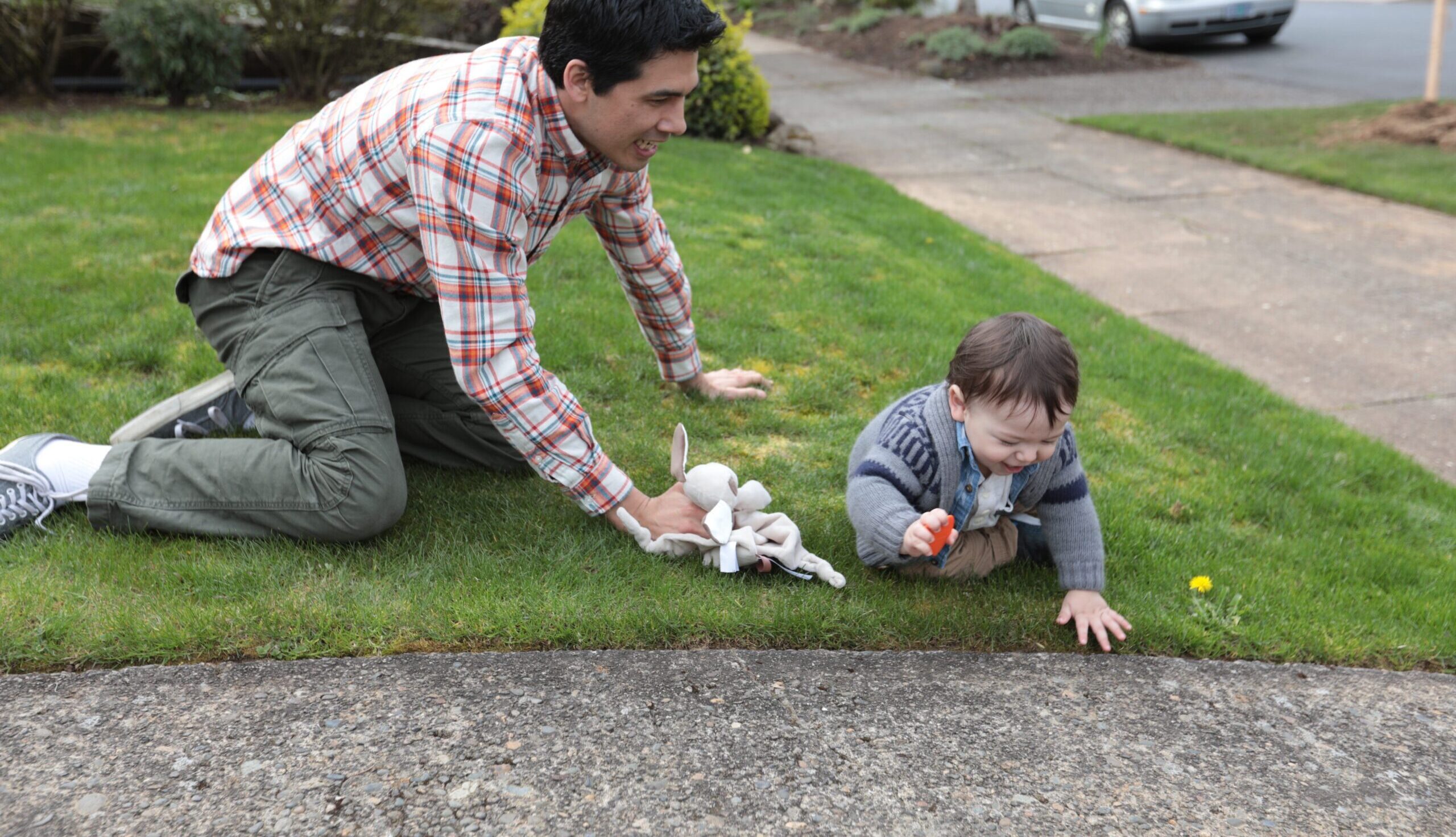
Why Today’s Kids Still Need Good, Old-Fashioned Play Time
“We all need empty hours in our lives or we will have no time to create or dream.”
– DR. ROBERT COLES
One of parenting’s simplest pleasures is watching your child at play. When children at play engage in the basics of movement, touch, and human connection, everything from their motor skills to their attachment systems benefits. Play is an essential part of childhood, as it helps your child understand others and make sense of the world…
Play is essential for healthy brain development. It supports all areas of your child’s development—the cognitive, physical, social, and emotional. What might look like simple play to you is actually your child hard at work, learning the skills necessary for success later in life. Even engaging in early musical experiences—like drumming to a rhythmic beat—can…
Apps, games, and videos are enchanting for a child— but is playing on a device really playing? Today’s children are exposed to multiple electronic devices that can overstimulate them. The brain needs to have a chance to “do nothing” from time to time. Being bored can be beneficial! In the empty space produced by doing…
Enter your child’s world through play. When you and your child play together, you foster connection. Think back to your own childhood. Do you remember your favorite ways to play? There are many ways to support your child in play, including setting up the right environment, encouraging interactions and then stepping back, supporting problem solving,…
Association for Library Service to Children. (2012). The importance of play, particularly constructive play, in public library programming. Chicago, IL: S. M. Nespeca. Cohen, L. J. (2002). Playful parenting. New York, NY: Ballantine Books. Ginsburg, K. R. (2007). The importance of play in promoting healthy child development and maintaining strong parent-child bonds. Pediatrics, 119(1), 182-191.…
| Cookie | Duration | Description |
|---|---|---|
| __stripe_mid | 1 year | Stripe sets this cookie cookie to process payments. |
| __stripe_sid | 30 minutes | Stripe sets this cookie cookie to process payments. |
| cookielawinfo-checkbox-advertisement | 1 year | Set by the GDPR Cookie Consent plugin, this cookie is used to record the user consent for the cookies in the "Advertisement" category . |
| cookielawinfo-checkbox-analytics | 11 months | This cookie is set by GDPR Cookie Consent plugin. The cookie is used to store the user consent for the cookies in the category "Analytics". |
| cookielawinfo-checkbox-functional | 11 months | The cookie is set by GDPR cookie consent to record the user consent for the cookies in the category "Functional". |
| cookielawinfo-checkbox-necessary | 11 months | This cookie is set by GDPR Cookie Consent plugin. The cookies is used to store the user consent for the cookies in the category "Necessary". |
| cookielawinfo-checkbox-others | 11 months | This cookie is set by GDPR Cookie Consent plugin. The cookie is used to store the user consent for the cookies in the category "Other. |
| cookielawinfo-checkbox-performance | 11 months | This cookie is set by GDPR Cookie Consent plugin. The cookie is used to store the user consent for the cookies in the category "Performance". |
| CookieLawInfoConsent | 1 year | Records the default button state of the corresponding category & the status of CCPA. It works only in coordination with the primary cookie. |
| elementor | never | This cookie is used by the website's WordPress theme. It allows the website owner to implement or change the website's content in real-time. |
| viewed_cookie_policy | 11 months | The cookie is set by the GDPR Cookie Consent plugin and is used to store whether or not user has consented to the use of cookies. It does not store any personal data. |
| Cookie | Duration | Description |
|---|---|---|
| mailchimp_landing_site | 1 month | The cookie is set by MailChimp to record which page the user first visited. |
| Cookie | Duration | Description |
|---|---|---|
| _ga | 2 years | The _ga cookie, installed by Google Analytics, calculates visitor, session and campaign data and also keeps track of site usage for the site's analytics report. The cookie stores information anonymously and assigns a randomly generated number to recognize unique visitors. |
| _gat_gtag_UA_46801669_2 | 1 minute | Set by Google to distinguish users. |
| _gid | 1 day | Installed by Google Analytics, _gid cookie stores information on how visitors use a website, while also creating an analytics report of the website's performance. Some of the data that are collected include the number of visitors, their source, and the pages they visit anonymously. |
| tk_lr | 1 year | The tk_lr is a referral cookie set by the JetPack plugin on sites using WooCommerce, which analyzes referrer behaviour for Jetpack. |
| tk_or | 5 years | The tk_or is a referral cookie set by the JetPack plugin on sites using WooCommerce, which analyzes referrer behaviour for Jetpack. |
| tk_r3d | 3 days | JetPack installs this cookie to collect internal metrics for user activity and in turn improve user experience. |
| tk_tc | session | JetPack sets this cookie to record details on how user's use the website. |
| Cookie | Duration | Description |
|---|---|---|
| cookies.js | session | No description available. |
| m | 2 years | No description available. |
This content is exclusive to CuddleBright® customers.
Experience CuddleBright® today!
Already a customer? Login to view.